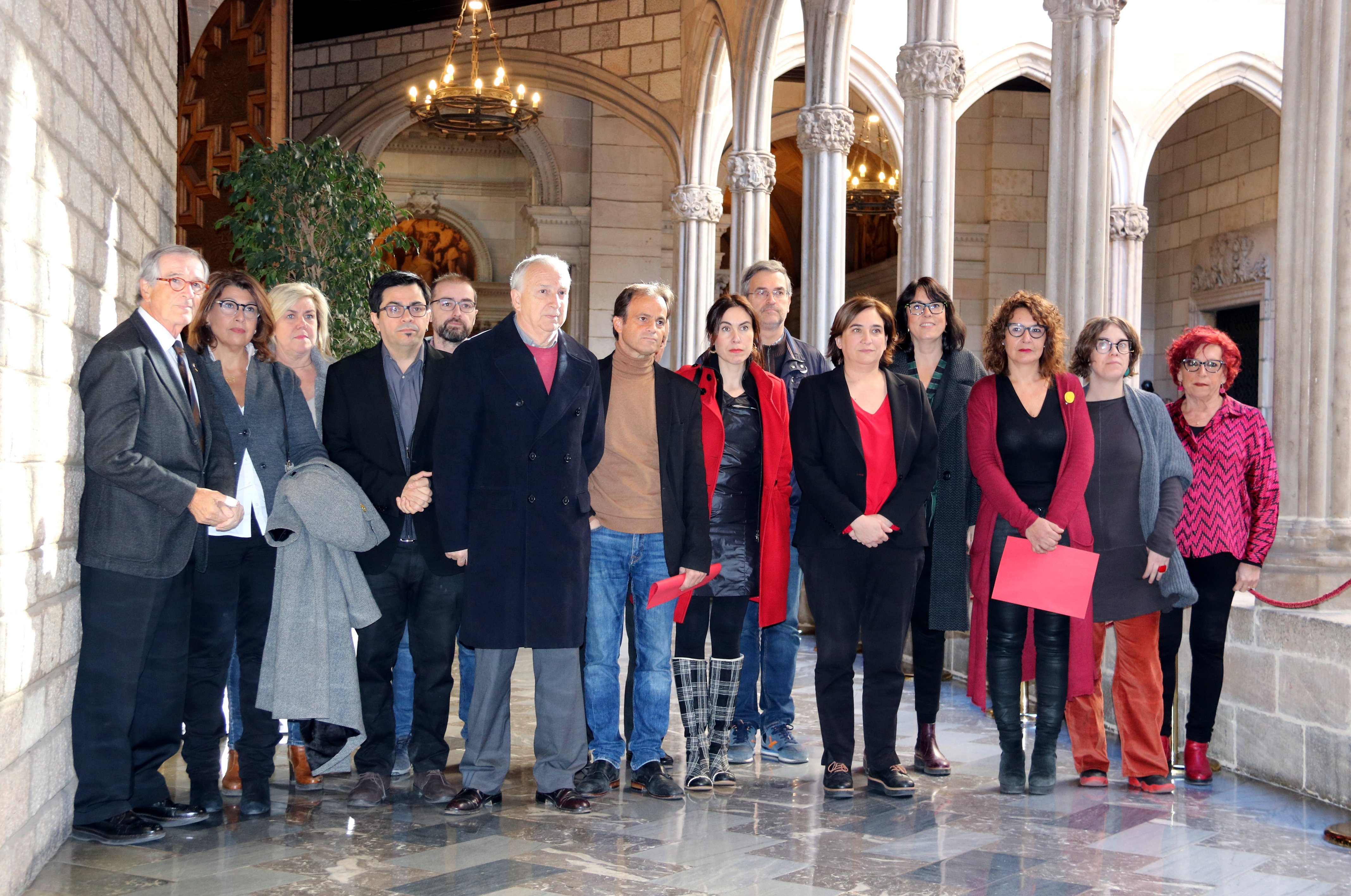In short, they're keen to get on with it. From a cell in Lledoners prison, one of them summed it up: "It's like when you're a student on the brink of a decisive exam. And you'd studied hard, conscientiously, and you couldn't study any more because you'd learnt it all from top to bottom". It's like that, but with the nerves and confidence turned up to the maximum.
This feeling is shared by both prisoners and their families: "the time's come to explain themselves to the world". That's what Laura Masvidal, wife of Joaquim Forn, said this morning during a ceremony in rejection of the trial at Barcelona city hall, organised by the pro-independence parties and mayor Ada Colau's team.
Relatives of the prisoners agree in saying they're facing the next four months as an opportunity, especially given that the trial will be broadcast live and with international observers. "An opportunity to accuse the state of the violation of fundamental rights, an opportunity to show that the case against them is absurd and an opportunity to show that the project they defend has been, is, and will be peaceful".
Back to Madrid
That said, besides their more political suggestions, they will have to again adapt their daily lives to new circumstances. Specifically, that their loved ones will be more than 600 kilometres away again (370 miles). It was announced this evening they will be moved on 29th January, with the trial expected to start some time the following week. They'll then have to travel there and back on the weekends for visits, and the monthly chance to see them in person. They will also be at the trial for the key days, for example, when the prisoners are testifying.
The women, Forcadell and Bassa, will go back to Alcalá Meco prison; the men (Junqueras, Forn, Turull, Rull, Romeva, Sànchez and Cuixart) to Soto del Real. The Jordis (Sànchez and Cuixart) have already been there and have warned their colleagues that the regime is stricter than an Estremera.

